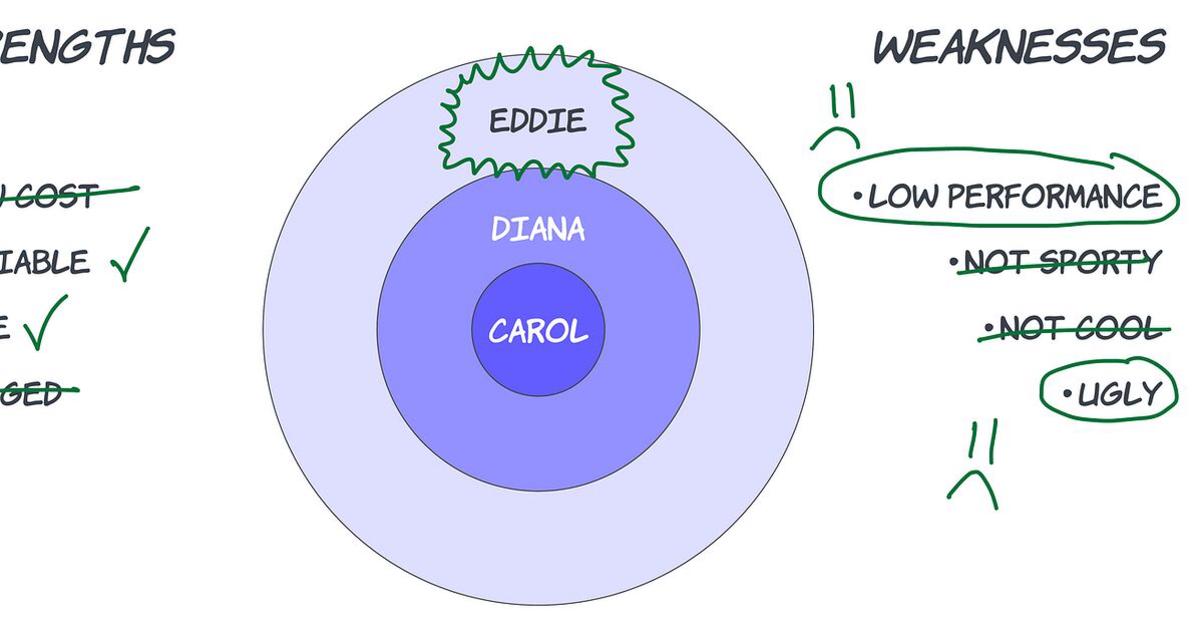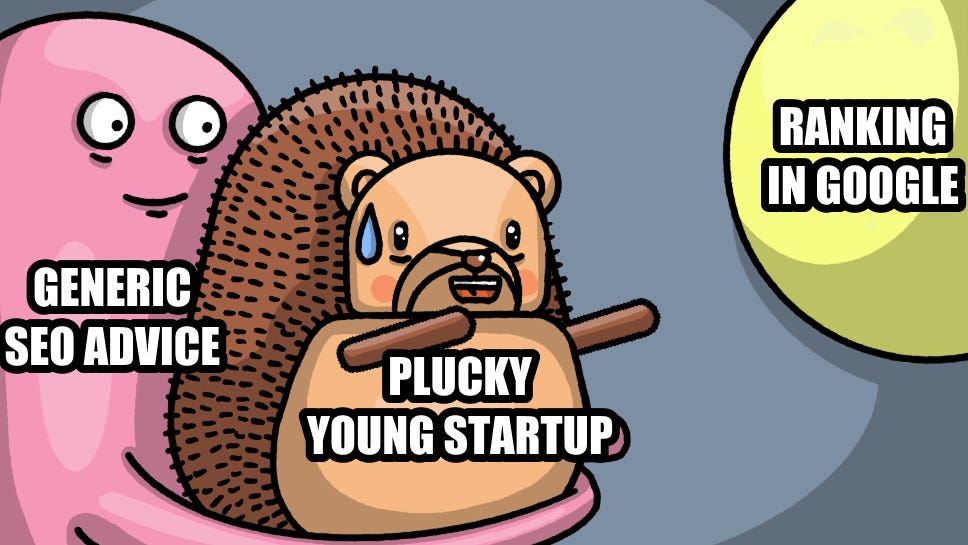- Six for Startups
- Posts
- Six for March 3
Six for March 3
Practical SEO for startups, why to focus your marketing on a narrow ICP, could it be better to build your own CRM? And so much more.

Welcome to the party, new subscribers! It’s the kind of party that isn’t a party in the traditional sense, but is still pretty fun if you enjoy staying home and reading a newsletter full of actionable insights for startup founders.
(Here because the thumbnail clearly has 7 birds? ChatGPT assures me that’s an image of six birds. Welcome to the future, friend.)
Laser Focus
One of the most impactful and counterintuitive strategies for early stage startups is focusing marketing on a smaller customer niche. When you aren’t sure who your customer is, it makes logical sense to target a broad audience and see who bites. The rub: this doesn’t really work. You’re likely to do far better if you focus on a specific and well-defined ideal customer and speak directly to them - you’ll end up getting more than just that ICP, too. Jason Cohen writes about how to do this, and why it works.
Good reading for:
- Pre-product market fit teams trying to find customers
- Leaders who need a marketing strategy
- Anyone who isn’t sure what their landing page’s hero text should say
Startup Engine Optimization
SEO can be a huge time suck with very little payoff, and it can also be the entire reason companies succeed or fail. What’s hard is figuring out how to make the most of it as an early stage startup with limited resources, especially when so much SEO guidance is uselessly generic. Andy Vandervell of Posthog wrote a guide explaining how small startups should think about SEO.
Good reading for:
- Leaders who think ‘we need a better SEO strategy’
- Marketers who aren’t confident they know where to put their SEO resources
Build don’t buy
AI coding tools and no-code frameworks are making it easier for anyone to make their own applications. This means you can have an app for yourself or your team that does exactly what you want it to do, and it’ll end up costing you the same as if you subscribed to a SaaS. Example: I built myself a CRM for free in Retool. I think we’re about to see a tooling revolution for small business and startups. Kevin Roose wrote about how he’s building himself personal apps.
Good reading for:
- People who have lost hope they’ll find a CRM that does what they want
- Operationally intensive teams that need better tooling to support their workflows
Department of thought police
Whether you call it DEI, or you just call it trying to reduce bias and build a company that’s easy to work for, you shouldn’t stop trying to be more equitable and inclusive. You should be wary, however, of the shifting regulatory landscape on language used here. The folks at HBR have compiled a good summary of what this means for your recruiting practices.
Good reading for:
- Anyone hiring right now
- Those curious about what all these DEI executive orders mean for their day-to-day
How to be biased… for action
Company values often fail to escape the ‘About Us’ page and become actual guideposts for your team’s behavior and company culture. This is usually because leaders don’t take the step of identifying and encouraging the behaviors that support those values. For example, so many companies have a ‘bias for action,’ but what does that actually mean for the day-to-day actions of the team? Dan Moore wrote about a very specific and repeatable pattern you can use to encourage your team to be more independent and action-oriented.
Good reading for:
- Leaders who feel like their culture isn’t what they want it to be
- People on startup teams who feel stymied by management making everything go slow
Cash flow questionable
Being clear on your target outcomes can help you make better plans that are more likely to succeed. One such outcome you should be clear on as a business leader: what kind of business are you building; a cash business, or an equity business? Nat Eliason wrote a helpful guide on figuring this out, and the ramifications for your strategy.
Good reading for:
- Idea-phase founders who want to be deliberate about their ROI strategy
Thanks for reading. If you opened any of these links to read more, consider subscribing & sharing Six for Startups with someone else who might find it helpful or interesting.
____
Six for Startups is compiled each week by me, Isaac Krasny. I’m a veteran startup product leader, founder, & CPO. I’m currently the product advisor for the GrowthCraft Startup Community and a coach and consultant helping guide founders to product-market fit.




